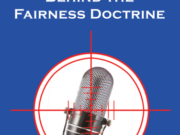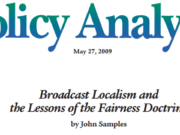President Trump recently complained that Google searches are biased against Republicans and conservatives. Many conservatives argue that Facebook and Google are monopolies seeking to restrict conservative speech. In contrast, many on the left complain that large social media platforms fostered both Trump’s election in 2016 and violence in Charlottesville in 2017. Many on both sides believe that government should actively regulate the moderation of social media platforms to attain fairness, balance, or other values.
Yet American law and culture strongly circumscribe government power to regulate speech on the internet and elsewhere. Regulations of social media companies might either indirectly restrict individual speech or directly limit a right to curate an internet platform. The First Amendment offers strong protections against such restrictions. Congress has offered additional protections to tech companies by freeing them from most intermediary liability for speech that appears on their platforms. The U.S. Supreme Court has decided that private companies in general are not bound by the First Amendment.
However, some activists support new efforts by the government to regulate social media. Although some platforms are large and dominant, their market power can disintegrate, and alternatives are available for speakers excluded from a platform. The history of broadcast regulation shows that government regulation tends to support rather than mitigate monopolies.
Others worry that social media leads to “filter bubbles” that preclude democratic deliberation. But the evidence for filter bubbles is not strong, and few remedies exist that are compatible with the Constitution.
Speech on social media directly tied to violence—for example, terrorism—may be regulated by government, but more expansive efforts are likely unconstitutional. Concern about “interference” in U.S. elections glosses over the incoherence of current policies. Some foreign speech, online and off, is legal if the relationship of a speaker and a foreign power is disclosed.
Preventing harms caused by “fake news” or “hate speech” lies well beyond the jurisdiction of the government; tech firms appear determined to deal with such harms, leaving little for the government to do.














